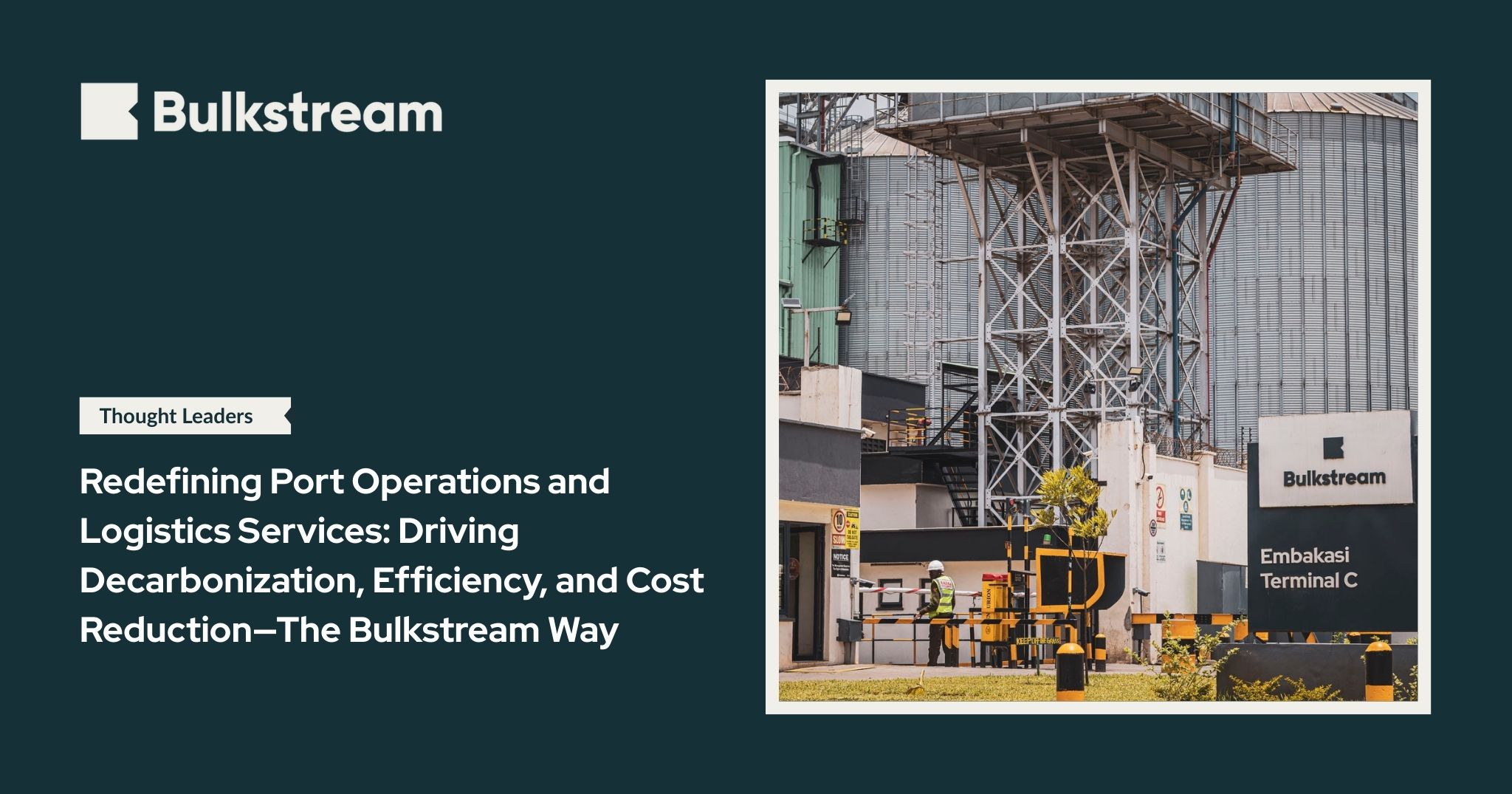Bulkstream is transforming the port operations and logistics services in East Africa by investing in modern infrastructure, enhancing port efficiency, and prioritizing rail freight services, all while committing to sustainability and cost-effectiveness.
Infrastructure Investment: Precision, Speed, and Sustainability:
Bulkstream’s efficiency is underpinned by major investments in innovative technologies for vessel discharge, handling, transport, and storage, of dry bulk commodities such as grains including wheat, sorghum, soya bean, maize, canola seeds, and rice. Bulkstream recently completed port and inland investments to handle clinker, fertilizer, and a broad range of industrial non-food bulk products.
“Bulkstream is revolutionizing logistics using rail transport, reducing emissions by 85% per ton-kilometer while enhancing sustainability. Our port discharge operations exceed industry standards, leading to cost savings and efficiency. More than just cargo handling, Bulkstream is shaping the future of East African trade through smart, integrated logistics solutions,” said Solomon Ondego, Deputy CEO.
By replacing conventional unloading systems with more efficient ship unloaders, enclosed conveyor systems, and automated processes, Bulkstream has cut handling costs by an estimated $5 to $7 per metric ton. This is because of less energy and fuel usage on a per ton basis, thus reducing our carbon footprint. These systems also reduce environmental impact by minimizing dust emissions, preventing material spillage, and enhancing worker safety—all while increasing throughput.
Leveraging Rail for a Greener Supply Chain:
At the core of Bulkstream’s logistics strategy is a decisive shift toward rail transport. Historically, cargo movement in the region has been dominated by road haulage—a method that is costly, inefficient, and environmentally unsustainable while also contributing to road congestion. For example, a single truck carrying twenty-eight metric tons from Mombasa to Nairobi consumes approximately 400 liters of diesel. In contrast, a single freight train transports 2,800 metric tons using just 5,000 liters of diesel, achieving a tenfold improvement in fuel efficiency.
“Modernized vessel discharge, handling, transport and storage systems enhance precision, cost efficiency, flexibility and sustainability. At Bulkstream, we are proving that logistics can be both smarter and greener,” said Roger Mattar, Chief Commercial Officer.
This transition results in an 85% reduction in carbon emissions per ton-kilometer, marking a significant step toward sustainable logistics. With over two million metric tons transported annually via rail, Bulkstream eliminates the need for 28 million liters of diesel each year—cutting CO₂ emissions by 75,000 metric tons annually, equivalent to removing 16,000 gasoline engine cars from the road every year.
Optimizing Port Throughput: Faster Discharge, Lower Costs: Bulkstream is redefining operational benchmarks at the Port of Mombasa, achieving industry-leading discharge rates. While traditional bulk cargo unloading averages between 2,000 and 8,000 metric tons per weather working day, Bulkstream consistently delivers over 15,000 metric tons per day—more than double the industry norm.
This acceleration in cargo flow significantly reduces vessel turnaround times and minimizes demurrage fees, which can average at $20,000 per day. Faster cargo clearance directly translates into cost savings for importers, often amounting to hundreds of thousands of dollars per shipment, enhancing supply chain fluidity and business profitability.
The Economic Ripple Effect:
Bulkstream’s impact extends beyond logistics—it’s reshaping regional trade economics. By reducing inland transport costs and improving port efficiencies, the company is lowering the overall cost of goods, benefiting manufacturers with affordable inputs, enhancing supply chain predictability for retailers, and ensuring more competitive pricing for consumers. Additionally, these advancements create employment opportunities in infrastructure development, transport, and supply chain services, fostering local expertise and contributing to regional economic expansion.
Leading the Future of Logistics in East Africa:
Bulkstream is not just moving cargo—it is pioneering the future of logistics in East Africa. By integrating rail freight, accelerating port efficiency, and deploying next-generation automation, the company is positioning Mombasa as a model logistics hub for the region.
With an unwavering commitment to sustainability, efficiency, and cost-effectiveness, Bulkstream is ensuring that East Africa is equipped for a future driven by smarter and greener logistics solutions.
“Logistics is the backbone of commerce, and our investments in infrastructure ensure a future-ready supply chain. By leveraging Rail freight, we are cutting millions of liters of diesel consumption, and making logistics greener, faster, and more cost-effective. We are not just meeting today’s demands, we are shaping the future of trade,” said Jared Locklear, Chief Operating Officer.
This incisive thought leader has been published courtesy of industry insights from Solomon Ondego, Deputy CEO, Roger Mattar, Chief Commercial Officer and Jared Locklear, Chief Operations Officer at Bulkstream.
